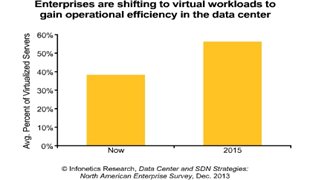A partnership deal with Genius Networks has extended Abzorb's reach globally, enabling the firm to implement international networks as well as introduce a streamlined provisioning process.
Genius Networks, developer of the CRISP core routing infrastructure and provider of global network services, meets growing demand for international connectivity via hubs located around the world, minimising latency and guaranteeing the QoS required for reliable delivery of voice and critical business services, according to James Arnold-Roberts, Genius Director.
He said: "We can control latency and eliminate the barriers to delivering business communications overseas. In turn, this opens the door to significant business opportunities for our reseller partners who previously lacked confidence in network reliability and the deployment of cloud solutions."
Steve Beeby, Abzorb Director, added: "More and more businesses are seeking to capitalise on opportunities in overseas markets and with the help of Genius we can now give our customers reliable communications on a global scale."
Abzorb has developed a reseller online pricing and ordering portal designed to ease deployment and simplify service level management.
"The portal encompasses the major carriers and allows resellers to manage their customer base to maximise sales opportunities across the complete Abzorb product set," added Beeby.
The Portal offers the functionality to create e-contracts for E-mail and Tablet sign off. All of this is available on the reseller's own branded contract and, when digitally signed, these will be processed automatically by Abzorb's systems reducing re-keying and reducing error rates.

 Congrats to Coventry-based Vivo Telecommunications for scooping Channel Telecom's Overall Partner of the Year award. The Reward and Recognition event, staged at the Mayfair Hotel in London"s West End, also saw BT Wholesale collect the Supplier of the Year award.
Congrats to Coventry-based Vivo Telecommunications for scooping Channel Telecom's Overall Partner of the Year award. The Reward and Recognition event, staged at the Mayfair Hotel in London"s West End, also saw BT Wholesale collect the Supplier of the Year award. Tim Campbell MBE was guest speaker at the Institute of Telecoms Professionals Annual Awards night which recognised the rising stars in the telecoms industry.
Tim Campbell MBE was guest speaker at the Institute of Telecoms Professionals Annual Awards night which recognised the rising stars in the telecoms industry. Increasingly, network equipment is being purchased as part of a data-centre-in-a-rack or app-in-a-rack bundle rather than as separate best-of-breed solutions for servers, storage, and networking, says a researcher.
Increasingly, network equipment is being purchased as part of a data-centre-in-a-rack or app-in-a-rack bundle rather than as separate best-of-breed solutions for servers, storage, and networking, says a researcher. Channel Telecom has held its end of year 'Reward and Recognition' evening for channel partners and suppliers at the prestigious Mayfair Hotel in London's West End.
Channel Telecom has held its end of year 'Reward and Recognition' evening for channel partners and suppliers at the prestigious Mayfair Hotel in London's West End.